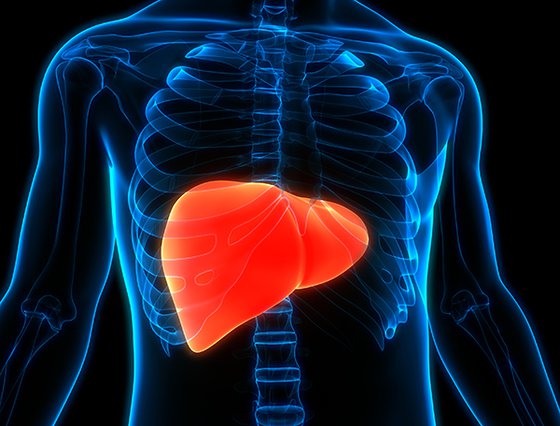


restorative medicine
Can Liver Transplants Spread COVID-19?
Can Liver Transplants Spread COVID-19?

The liver is the second most needed organ for transplant surgery in the United States. Almost 10,000 Americans are currently on the waitlist for a new liver.
During the COVID-19 pandemic, the need for liver transplantation increased, particularly as more people were diagnosed with alcohol-associated end-stage liver disease.
Despite this increased need for liver transplants, many potential organ donors were testing positive for SARS-COV-2 near the time of possible organ donation. Thus, the COVID-19 pandemic raised a prominent concern:
Can livers from donors who have recently tested positive for COVID-19 transmit the virus to recipients?

A recent study led by Ashton Connor, MD, PhD, Assistant Professor of Surgery, suggests that this concern is improbable.
Dr. Connor’s study, published in Transplantation Direct, found no significant impact on health outcomes in recipients of liver grafts whose donors tested positive for COVID-19 within 14 days prior to donation.
These findings corroborate three national-level studies while adding novel, granular information to the literature.

Ashton Connor, MD, PhD
“We accounted for additional data that national level data doesn't capture,” Connor explained. “We knew which of our donors tested positive for COVID-19 within 14 days of the transplant, and we were able to show that recipients of those donor organs did not consistently experience a rise in anti-SARS-COV-2 antibodies post-transplant.”
Connor and his research team also showed that donor organs obtained at times of different dominant SARS-COV-2 viral strains did not significantly impact recipient health outcomes.
“Accounting for this highly granular, patient-level data was important to our research team because it provides stronger evidence for the safety of liver transplantation from COVID-19 donors,” Dr. Connor noted. “This ultimately helps address the public health need for more solid organ donation.”
The multidisciplinary team involved in the study and the care of these patients included infectious disease specialists, hepatologists, surgeons, intensivists and pharmacists.
The evidence supports use of COVID-19-positive liver donors at this time.
Ashton Connor, MD, PhD
Assistant Professor of Surgery
Study data was gathered from all liver transplants at Houston Methodist Hospital’s Sherrie and Alan Conover Center for Liver Disease & Transplantation between April 1, 2020, and December 31, 2022. All donors were deceased and asymptomatic at the time of COVID-19 infection testing. Donations from symptomatic SARS-CoV-2 infections or donors who died from complications of COVID-19 were not accepted.
“A limitation of this study is that we didn't test for the presence of SARS-COV-2 viral RNA in donor livers,” he said. “Knowing this information could further solidify our findings that livers from donors who have tested positive for COVID-19 within the last 14 days have no risk of transmission to transplant recipients.”
0
Almost 10,000 Americans are currently on the waitlist for a new liver.
0
Almost 10,000 Americans are currently on the waitlist for a new liver.
We’ve come a long way in understanding how COVID-19 is transmitted, but studies such as Dr. Connor’s are still vital to the safety of immunocompromised patients, such as those needing a transplant.
“The evidence supports use of COVID-19-positive liver donors at this time,” he said. “But as the virus changes, the risk of transmission through donated liver can change too. We shouldn't let our guard down. More research is needed to confirm the continued safety of COVID-19-positive liver transplants.”
Ashton A. Connor , MD, PhD, Max W. Adelman, MD, Constance M. Mobley, MD, PhD, Mozhgon Moaddab, PharmD, Alexandra J. Erhardt, MD, David E. Hsu, MSc,Elizabeth W. Brombosz, PhD, Mansi Sanghvi, MD, Yee Lee Cheah, MD, Caroline J. Simon, MD, Mark J. Hobeika, MD, Ashish S. Saharia, MD, David W. Victor III, MD, Sudha Kodali, MD, Tamneet Basra,MD, Edward A. Graviss, PhD, Duc T. Nguyen, MD, PhD, Ahmed Elsaiey, MD, Linda W. Moore , PhD, Masayuki Nigo, MD, Ashley L. Drews, MD, Kevin A. Grimes , MD, Cesar A. Arias, MD, PhD, Xian C. Li, MD, PhD, A. Osama Gaber, MD, and R. Mark Ghobrial, MD, PhD
Callie Rainosek, MS
June 2024







